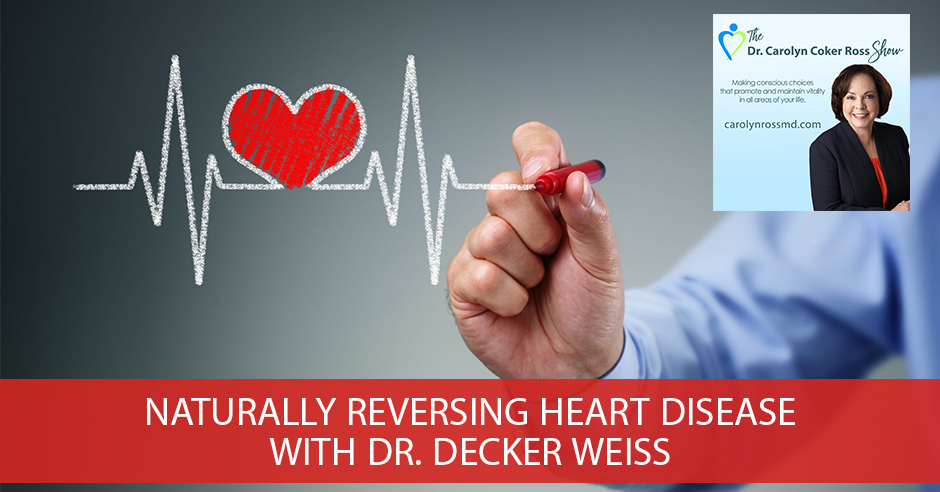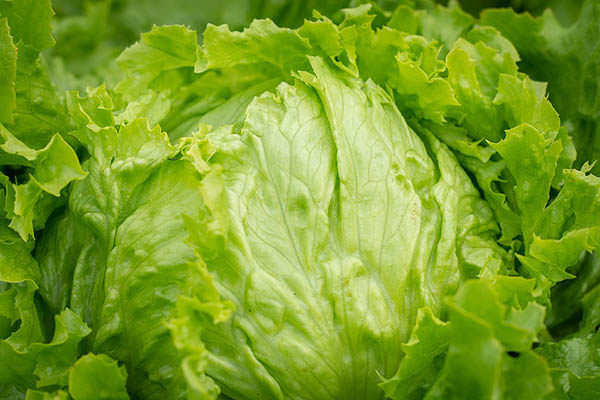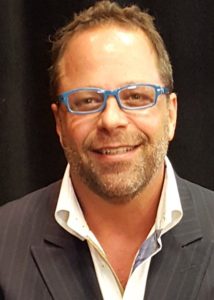
—
Listen to the podcast here:
Naturally Reversing Heart Disease with Dr. Decker Weiss
Our guest is Dr. Decker Weiss. He is the first Naturopathic Physician to complete a residency program in the Columbia hospital system, the Arizona Heart Hospital, and the prestigious Arizona Heart Institute. He’s also the first Naturopathic Physician to be on staff at a conventional hospital, which is the Arizona Heart Hospital. He’s Assistant Professor of Medicine at the Southwest College of Naturopathic Medicine and he has a private practice in Scottsdale, Arizona. Dr. Weiss is a heart specialist or cardiologist and we’re going to be talking about stopping or reversing heart disease naturally. Welcome to the show, Dr. Weiss.
Thank you for having me on.
Why is it significant that you are the first Naturopathic Physician to do all of these things? Can you say a little bit about your training and how it’s a little different from conventional medicine?
A lot of the physicians especially cardiologists, all of them were conventional cardiologists first and then later decided, “Maybe there’s something to these natural things.” They either start using supplements or taking courses, but they’re medical doctors by training. It’s different where I’m a Naturopathic Physician by training. I went to a naturopathic medical school in Tempe, Arizona. After I got my Bachelor’s degree, I went to medical school but it was a naturopathic medical school. With that credential, I went into a conventional system which is odd. Usually, conventional schools will lead to conventional residencies and fellowships.
It’s uncommon for a conventional medical school or conventional residency to host a Naturopathic Physician. Your training is similar to ours from what I understand except that you have much more training in natural therapies and herbal remedies.
There’s also a philosophical difference. Philosophy to a lot of my conventional colleagues isn’t such a strong thing. They don’t wake up and say, “Today I’m an allopath. I’m going to work against disease.” It seems a lot of my conventional colleagues don’t need to define their philosophy. Naturopaths were phobic about not defining our philosophy. We are always defining our philosophy. The body when unobstructed can heal itself, removing obstacles to help. We’re storing, not replacing these types of concepts. We get married to our philosophies and we try and not make it so much about the therapy, but more about trying to get the body to repair itself to do what we want it to do.
In my training, I did a two-year fellowship with Dr. Andrew Weil‘s program in Tucson, which is integrative medicine. We start with that same philosophy that the body has the power to be self-healing. I wanted to give people a little bit of an understanding that there is a different philosophical approach. It’s important when we start to talk about your approach to heart disease, your philosophy and your understanding of the causes of heart disease are different than what conventional medicine is pursuing. Can you tell us a little bit about that?

Heart Disease: If we have too many of the wrong kind of fats, then we would have inflammation and oxidation.
For the record, we’re a little more outergrative than integrative. I’ve always wondered why Dr. Weil called this problem integrative when you have these smart physicians trying to figure out how to get people well and stay out of the system. That’s largely what I’m also doing. In essence, the fundamental differences we’re looking at the underlying causes of heart disease in directly applying natural models to resolve them. Cardiologists tend to be after the fact types of practitioners, “You have an 80% blockage. You have a positive stress test. You’ve had a heart attack.” A lot of the studies are what we call secondary prevention studies where after you’ve had a heart attack, we’ve tried these things in order to prevent you from having another one. Naturopathic Physicians are, “What are the underlying causes?” The illusion here is that once you’ve added stents and bypass, then you need to stay in these conventional systems because you’re always going to have problems with them. These underlying causes become much more important after you’ve had a heart attack. I had a new record. I had four patients with a combined total of 36 stents, in which 30 of them were occluded. For those folks, there were some differences but it’s almost the same exact talk as I have with somebody who wants to prevent disease. Oxidation, inflammation, nutrient depletion, toxicity, hormones and mind-body are the underlying causes of all heart problems and most cancer problems.
Most chronic disease traumas in general. Let’s get into that a little bit more. In my training in conventional medicine, we look at prevention but it’s not a big focus, unfortunately. My residency training isn’t preventive medicine, but generally you’re right that we’re treating more symptoms instead of underlying causes. There is a theory in medicine that if you can lower your bad cholesterol, if you can increase your good cholesterol, then that’s the main thing that needs to be treated. You say no and tell us why.
Lowering cholesterol isn’t our first go around. I always include myself in the family of all physicians as something Naturopaths shouldn’t be. I don’t get into that. Anybody who sees patients is a doctor to me. You got patients across from me, you get my respect. That’s the way I look at it. When you look at lowering cholesterol, the first time it was done in the ’50s and ’60s in Scandinavia, they started to run some data on that. The only thing they found out is they created a lot of depression. We tried it again when statin models came around. When the ready yeast plants where they were finding these statins like lovastatin, fluvastatin, simvastatin, and pravastatin. These things would lower LDL and sometimes raise HDL and sometimes affect triglycerides. They found, “We can change the numbers and prevent the disease.” It’s largely a lot of hype, a lot of people trying their best. The medical doctors like naturopaths love to see labs change. We love to look at patients and go, “See? This lab is better. Your heart is better but it doesn’t simply work with it.” Here’s the problem. Cholesterol is in every cell in the body and when you look at longevity, it used to be associated with higher cholesterols, which make sense. Probably better brain function, healthier hormone production. Cholesterol is the duct tape of the human body.
You’re saying in the past having higher cholesterol was a good thing?
Yes, it still is when we look at the Inuit studies done in Greenland was 300 and 400 LDL, but a couple of things came out. One is their DHA to arachidonic acid levels were 3,000:1 translated good fats are good for your body, bad fats are bad for your body. There is nothing in the middle. The other thing is oxidation. For those folks that have higher LDLs, you have more cholesterols can oxidize. LDL when rancid or oxidized attracts the immune system and then develops the disease. Medical doctors decided we’re going to interrupt the part of LDL production in order to try and halt or slow the progression or reverse the disease. The problem with that is LDL is needed for everything. It makes hormones, it’s in brain tissue. When you start lowering it, you get an unpredictable cascade. We think statins caused cancer because in animal studies they always have. They call it heart failure and there are more studies about lowering cholesterol with lowering ubiquinol and CoQ10 levels in triggering heart failure.
Not everybody probably understands all the terminology that you’ve used. Let’s go back to the Inuit studies and talking about the ratio of DHA to arachidonic acid. What we’re talking about is the ratio of Omega-3 fatty acids to the Omega-6 fatty acids. The Omega-3s are anti-inflammatory and Omega-6s are pro-inflammatory. That’s what you’re saying is the problem. If we have too many of the wrong fats, then we would have this inflammation and also oxidation. Did I get all that right?
Close. You get the inflammation. Poor sources of B, for example, are high in the inflammatory types of omega-6s that you were saying the arachidonic acid. When they went away from eating seal and fish every day and went to beef, that completely flipped their nature and they weren’t ready. The other thing is they brought in sugar and alcohol, which with all that cholesterol they had a lot more opportunity to oxidize cholesterol. They went into rapid disease states. It’s a combination of oxidation and inflammation that broods the disease. That’s what they went from simply going out to their hut and eating native food. When they walked into a Burger King and started to eat, that completely flipped it and they got the rapid disease.
[bctt tweet=”The body has the power to be self-healing. ” username=”CarolynCRossMD”]Naturopaths and other practitioners of natural medicine try and interrupt the disease by blocking the oxidation of cholesterol. When those Inuits come into my office are those Scandinavian genes, the MUL1 genes with 200 LDLs, I put them on a lot of antioxidants. It is agreed in all systems that it is the oxidative stress to the cholesterol. The oxidation of cholesterol that causes the disease, but medical doctors, for the most part, do not believe you can prevent that with antioxidants. We believe that you can. This is where a lot of Mediterranean diet with food high in antioxidants and good anti-inflammatory oils. Years ago there was a Lyon Diet Heart Study that was dramatic along with Framingham showing the changes when you get the beneficial fats and high levels of antioxidants in foods.
If people are wondering, “How do I slow down oxidation?” You mentioned diet. The Mediterranean diet is high in fruits and vegetables and olive oil. What are some of the other dietary components that people need to slow down this oxidation cascade?
Bright colored berries, the purples, the reds, the blues. All those strong antioxidants as well as the freshness of foods, which is why Europe has such a huge advantage. We have industrialized foods here. As well as keeping all grains, bread, and things to a minimum. There simply aren’t enough antioxidants in food to solve it at the end of the day. You’re going to have to supplement.
Supplementing with Omega-3s or other healthy fats. Are there other supplements? There has been some controversy in the research about taking vitamin E supplements.
I can write a study I know will fail and that’s what I think happened with those studies. Vitamin E and the Cambridge Heart Antioxidant Study simply was a star. You get into pharmaceutical models and you get into all those controversies and all of a sudden it’s good, bad, good, bad. Vitamin E is a category. It’s not a single entity, similar to vitamin D. Everybody’s talking, “Is it D or D3?” and then vitamin E is good, vitamin E is bad. The problem is that with Vitamin E you need the gamma-Tocopherols, the gamma-Tocotrienols. You need the alphas, the betas and then D needs to be taken with D3 or we make a mistake is when we start to treat antioxidants like drugs. “It’s all vitamin D now and vitamin E is bad,” and then, “It’s all vitamin E but only gamma-Tocopherol.”
What you need is a collection and the reason is simple. To your audience, there are a lot of things that can oxidize your body. Some will help block it. Some vitamin E will block some types of free radicals and oxidation. Some vitamin D will help protect others. You need a variety and these fat-soluble antioxidants that protect our cholesterol. You need to take a collection of them. There’s a product that has Tocopherols, Tocotrienols, D, D3, K, K2, A and beta-Carotene with the most important of them the alpha-lipoic acid all in one. All in one antioxidants, you’re going to see a lot of them coming out are the smartest way. I can write a study that will make vitamin E look bad because just taking alpha-Tocopherol is not good for you. You’ve got to take them in the collection.
It sounds like you’re advising that we should take whole vitamins. For example, vitamin E and taking a preparation that had mixed Tocopherols and taking vitamin D2 with vitamin D3. Are there other things that people can do to naturally reduce the oxidation risk?

Heart Disease: One of the ways that we alkalize our body and neutralize things is through deep breathing.
Everything in your life. When you’re looking at trying to prevent oxidation, you can’t do. On every front, you can try and back it off. For example, the soap you use in your house to use a naturally-based or chemical based one? Sun exposure, how much of that do you get? How you even clean the interiors of your car? If you have carpet versus tile? All of these things add up. Do you use a natural company to keep the bugs out of your house? Do you spray with chemical pesticides? Along with your food choices, largely the more preserved and the more industrialized your food is the more potential oxidation it can cause. Simple choices between margarine and butter, butter is simply better for you. Healthier oils versus using canola oil. Using a good olive oil. It’s an ongoing battle and a lot of people get frustrated with that because they try hard. Please understand all we can do is the best we can each day because there are many chemicals and bad things out there for us. It’s difficult.
What about stress management or practices such as meditation? Have there been any studies to show that they reduce oxidation?
I don’t know of studies showing specifically oxidation. What we do have are studies showing prayer, meditation, exercise, getting sedentary behavior out of your life and keeping moving benefits the heart and vascular health. I don’t know specifically of studies talking about oxidation in meditation. It would make sense simply because one of the ways that we alkalize our body and neutralize things is through deep breathing. A lot of meditation has these deep breathing techniques and mindful breathing techniques that are probably beneficial. I don’t know any studies, I sure recommend it.
There are studies on types of exercise like yoga that involve deep breathing, that show that it helps with insulin resistance and glucose tolerance. We’ve talked a little bit about cholesterol and from your point of view is not the end all be all of heart disease prevention. There are other risk factors such as high blood pressure. How do you deal with that naturally?
High blood pressure is the result of ongoing problems. High blood pressure is a sign that the endothelium and the immediate layers of blood vessels either don’t have the proper nutrients or being supposed to oxidation inflammation. Hypertension is your goggles to see the iceberg. It’s letting you know that your vascular system is having issues. Hypertension comes down when you solve those underlying issues. For example, magnesium deficiency is a common reason why people have high blood pressure, but it takes a while to replace magnesium. It takes six months to two years of oral supplementation of even good magnesium in order to fix that. Hypertension is a little trickier because if you just leave it high, you can damage your vascular system while you’re working on the underlying cause. Whether we do it herbally with under pressure or we do it with drugs, we do need that pressure and range while we’re working on the heart. Sometimes that will involve medication.
Besides magnesium, are there other things? I know exercise is something, but are there other supplements that can help with high blood pressure?
There are and you usually look at vascular support versus some things that are like vasodilators. Herbs like rauwolfia are vasodilators. They naturally work a little more like how medications will versus using things like Indian gooseberry or amla to help heal the endothelium and the media layers. Block that inflammation where it’s attacking the vasculature as an underlying cause. It gets complex with high blood pressure, but for most people, we need to keep it in range while we’re working on the underlying causes.
[bctt tweet=”Bad fats are really bad for your body; there is nothing in the middle.” username=”CarolynCRossMD”]I saw in an article you wrote you recommended Indian gooseberry for heart disease.
Indian gooseberry is similar to hawthorn where it has a strong affinity for the intimate linings of blood vessels. It seems to be anti-inflammatory and a strong antioxidant for those layers, helping heal and repair. In essence, heart disease is endothelial dysfunction meaning the linings of your vessels. The endothelium is the largest organ in your body. When that doesn’t work right, it can tend to rupture or tear which causes a heart attack. What we’re looking at with the Indian gooseberry is there’s no doubt of the affinity for reversing small 20%, 30% blockages between these endothelium and media layers. These things that cause heart attack, the Indian gooseberry can help reverse that in the presence of antioxidants and these other things. It’s the breakthrough we’ve been looking for.
What about curcumin as a supplement for heart disease?
I don’t use curcumin specifically for heart disease. Inflammation is tricky and it’s hard for the average person to understand what we’re talking about. When we’re saying inflammation, we’re not talking about a thumb in the car door swelling. What we’re talking about is chronic stuff. For example, when my patients come in, “Do you have digestive problems? Do you have joint pain? Do you have irritable bowel or Crohn’s? Do you have chronic skin problems? How are your teeth and gums? Do you have estrogen dominance?” These are the things you have to find out specifically because these are the sources of chronic inflammation. When you’re looking at joint pain or fibromyalgia, curcumin with phenylalanine and a lot of these things is one of the premier ways to get rid of the pain.
One of the keys here is that when you’re looking at prevention of heart attack and secondary prevention, drugs don’t do it well. If you take a Tylenol because you have back pain, Tylenol most likely with research will say that it will increase or even double your risk of a heart attack. When you take curcumin, phenylalanine, and Boswellia when you’re having back pain, you probably haven’t increased it and most likely have decreased your risk of heart attack. All you know is your pain is better. How you go about that is vitally important. In natural and conventional models of medicine, there are no safe anti-inflammatories. I know what’s coming, “Dr. Weiss, my aspirin a day.” An aspirin a day is very controversial. For every aspirin you take, you bleed about a teaspoon full of blood. There’s nothing natural or protective about that.
Some of the other things that you mentioned, which are in the antioxidant category are things like green tea and resveratrol. Are those effective? Is there any evidence to support that they’re effective and helping with inflammation and oxidation?
Green tea for sure more with the oxidation end, it’s not as strong and potent of anti-inflammatory. The catechins in green tea, there’s a reason why it’s the number two consumed liquid in the world. There’s a reason why in areas that are incredibly toxic, China for example, where they smoke and the air and water is filthy but they still have far less cancer than America. There are reasons for that and those catechins in the green tea are the specific antioxidants. Resveratrol is going to be along with things like curcumin and Indian gooseberry. It’s going to be your anti-aging antioxidant. There’s enough fat-soluble effect and water-soluble. The thing with resveratrol is there’s more benefit than we even know yet. Resveratrol like CoQ10 ubiquinol, which is the premier fat-soluble antioxidant for the heart, when you’re looking at resveratrol every time we study it is it’s better.

Heart Disease: Red wine is one of the safest ways to relax.
Resveratrol is what they think is responsible for the French paradox. The French people can eat many different fatty foods and yet they have a lower risk of heart disease than America.
Yes, but that’s not accepted. The French paradox is minerals. I’ve been to France and I’ve lectured in France and I’ve met with the health ministers.
Resveratrol comes from red wine. There is some thought that drinking red wine in small amounts has a beneficial effect on the heart.
Here’s the thing with red wine, we are a lousy population at relaxing. Red wine is one of the safest ways to relax. It has a little antioxidant in it like resveratrol and proanthocyanidins. It’s relaxing. Frankly, red wine is safer than Coca-Cola in my opinion especially Diet Coca-Cola. When you’re looking at habits, I will never conclude that red wine is good for people. Alcohol is still a toxin to the heart, the ethanol. This has been accepted forever. In little amounts and occasional stuff and especially higher quality red wines, it’s going to be safer and people will live longer because they probably sleep a little better and they relax a little bit better. If somebody said to me, “Dr. Weiss, should I take a sleeping pill or have a glass of wine?” I’m going to say, “Have a glass of wine.”
I want to talk a little bit more about diet. Salt is a big issue in diet recommendations from physicians who are saying that particularly if you have heart disease or heart failure, you should be on a low salt diet. Do you have any position on that?
The first thing I have to say is if the low-fat, low-salt diet from the American Heart Association, which started many years ago would have worked. We wouldn’t be talking about this now, number one. Number two is what we’re doing is we keep turning our foods into drugs and we need to stop that. For salt-sensitive people, if you have heart failure or kidney problems, you have to watch the salt. For the other 99% of us, it’s the type of salt. Salt is ideally a collection of minerals and it’s not white. Salt should be a brown color or a gray color. When you evaporate for example seawater, you get a grayish mix of minerals dominated by sodium but with magnesium and various other trace minerals in there. Similar to humans, humans are the same thing. We need some sodium but we need all of these other minerals all the time.
What’s the best salt to use?
[bctt tweet=”We keep turning our foods into drugs and we need to stop that. ” username=”CarolynCRossMD”]There are several of them. There’s one called Real Salt in the stores, there’s one that’s a Himalayan salt. I’m married to a European. We have eight kinds of salt depending on how she’s cooking, none of which is white. The key is that the salt is not white. Salt became what we call unopposed sodium chloride, where it was only sodium chloride and we became sodium chloride-toxic. Symptoms of that are high blood pressure and holding fluid. When you eat a healthy salt, it’s good for you.
What about the iodine in salt? Is that in the other forms of salt?
Yes, it is especially in good sea salt. Iodine is a necessary part of salt. In the sea salt, you will get a good amount of iodine in there. We will start people on it. We are deficient as a community in the United States in iodine because when we took unopposed sodium chloride from a mine and then we iodized it, it wasn’t enough. The Morton Salt that you hear about they’re iodized we thought, “Humans need iodine, then no more goiters.” It simply isn’t working. We need more iodine than that. Ask any estrogen-dominant woman whether they should have iodine or not and how they feel if they can take it safely and they’ll tell you they need it.
Are you talking about iodine as a supplement or just getting iodine in your salt?
Both. Sometimes you need to supplement it in order to get your stores back up to get well, to support your thyroid, not if you have an allergy. The way to start is always by changing your salt over and getting trace amounts all the time. That’s how the body likes to get minerals. It likes to get little bits all the time of minerals. We give them in these big chunks and that’s needed sometimes, but it’s not preferable.
What about meat in the diet? Meat is not exactly anti-inflammatory. Some of the anti-inflammatory recommendations are to eat more fish and vegetarian sources of protein. Meat also has amino acids that are healthy for us. How does that affect our heart health?
Meat is always going to be controversial. The best diet in the world is the raw vegan diet, which is hard and it’s not for everybody. The reality is as physicians if we say, “Everybody should be a raw vegan.” You’re not going to get very far. Flesh proteins can be inflammatory. The ones that lean towards not being anti-inflammatory, for example, are salmon. We’re going to treat it like salt. All beef isn’t created equally. You’ve got organic free-range beef where they ate grasses. Remember about 1,000 years ago we were talking about arachidonic acid. The fat types in the meat are going to be much better if they are eating grasses and free-range versus something that is a factory farm fed corn, which to me is dangerous for our diet.

Heart Disease: Iceberg lettuce is not a food.
I understand beef that’s free-range also has a higher Omega-3 ratio too.
A lot of these people live 100 are these farmers and you ask them, “Did you eat meat?” They said, “I ate my meat. I eat the cows that were in the pasture, not the ones that we sent off to slaughter.” You’ll hear that all the time from them. For hunters out there, elk, buffalo, and deer, these meats have way more benefits and a tremendous amount of benefits.
I want to go into some specifics. Dr. Weiss, what is your approach to someone who may have already had a heart attack who would come into your office and say, “I’d like to see if I can reverse my heart disease?” I know that Dean Ornish‘s studies have shown that the very restricted diet that he promotes with proof has been able to reverse heart disease, a vegan diet. What are the other things that you would recommend to people coming in who’ve already had a heart attack?
Number one, we need to prioritize. Sometimes their priorities are, “Keeping my cholesterol numbers.” I’d say, “No, your priority is to not have a heart attack.” They’re all caught up in their labs and they’re not caught up in how they feel. If they come in they’re still pale but their cholesterol is normal. The first thing we have to do is we have to reestablish and fix the lining, the endothelial lining of the vessels and stabilize it.
You’re doing that with the Indian gooseberries?
Indian gooseberries, hawthorn extract, antioxidants. It’s going to be individualized but those are some of my most powerful tools. With that, I do an inflammation inventory. “You have heart disease, where is the inflammation? Is it poor digestion? Is it joints?” You treat that inflammation naturally because as the inflammation comes down, the immune system calms down and stops dragging that cholesterol into those vessel beds.
If they have arthritis along with their heart problem, what would you do differently?
[bctt tweet=”By doing your pH testing, you can find out what you need so you don’t over-supplement or under-supplement.” username=”CarolynCRossMD”]Number one, I’d see what they’re doing for their arthritis. If they’re saying, “I take three Tylenol a day for my arthritis.” We move them into natural models and then we put them in an anti-inflammatory diet. A raw vegan diet, but not everybody’s ready for that. Salmon twice a week for non-vegans always because it lowered risk of heart attack as much as statins or more. It’s well over 30% reduction in second heart attack and secondary prevention studies. Always salmon twice a week, explain to them that iceberg lettuce is not a food. It doesn’t belong and it should not be called a food, in my opinion. White sugar is not a food, it is a toxin. It doesn’t exist in nature. Somehow iceberg lettuce is a living plant, but I don’t know how.
It’s a good source of water.
Getting them into that stuff, explaining there are good fats and bad fats. When you’re looking at Ornish’s stuff, you’re talking about mineralization. We have them check their pH, their urine and saliva. I have to get their pH up into the sixes and sevens. It’s about mineral content. It’s about the salts, the minerals, the green powders, salads. How you eat because we have to start moving them to an alkaline body environment, which then degrades the calcium out of their arteries. It’s not the vegan diet that pulls the calcium out of the arteries, it is the anti-inflammatory and the fact that we’re stashing them with minerals and then that’s what will pull the calcium out. You can be flexible with carnivores as well. What Dean has done is magnificent, but he’s excluded too many people. We need to bring these models to everybody. When you explain to a carnivore the difference between elk and buffalo versus what’s going on in McDonald’s, they get it. They do well with it and then they can embrace it. As physicians, we’ve done our job. We’ve adapted to the patient’s needs, but we’re getting our medical goals in.
There are certain types of diets that are more alkaline too that would help get your pH levels up.
Absolutely, minerals. When you were speaking about the French anomaly, minerals are in the water. They’re dense minerals. Their bread is not white. It’s gray because it has minerals.
What are the things that Americans can do to get their minerals up though?
Number one, I don’t consider iceberg lettuce as a food. You’ve got to go the dark leafy greens. You have to go to cruciferous vegetables, but it’s also almost impossible to get minerals strictly from food because even organic is still depleted soil. Organic is largely what it’s not, it’s not a pesticide and it’s not genetically modified.

Heart Disease: If your endothelium is not functioning properly, you’re very vulnerable for heart attack.
You’re talking of having to take a mineral supplement as well.
The nice thing is by doing your pH testing, you can find out what you exactly need. You don’t have to over-supplement or under-supplement.
I want to make sure that we get your website address here because you have a book, but you’re not going to write a second book. On your website, you’re going to put up much of what we’ve been talking about how to stop or reverse heart disease naturally. The website address is WeissNaturalMedicine.com.
If I was going to write a second book, how to reverse heart disease is going to be on there. You don’t have to buy anything. It may not be individual enough for you. You may need to have a physician guide you through it. Especially if you’ve already had a heart attack or you’re on medications, then you will need to have a physician guide you through it.
Are there other ways to find physicians to have the same background that you do? If they wanted to find someone and they aren’t in your Scottsdale, Arizona area?
Unfortunately, I’m the only naturopathic cardiologist. We’ve trained another one and we’re going to see where she’s going to land. She’s picking what part of the country. A medical doctor like yourself and a naturopath are having more and more in common every day. I know naturopaths that aren’t exactly practicing natural medicine anymore. It’s an individual thing if you look at the resources and town. There are some good chiropractors out there too that know how to do this because the principles of natural medicine never change, ever. As long as gravity’s around, what we’re saying will work. We didn’t invent it. We’re trying to find better ways to deliver it.
At least on WeissNaturalMedicine.com, there’ll be more information about what we’ve been talking about that Dr. Decker Weiss told has about. Is there any use for statins in the treatment or prevention of heart disease from your point of view?
In my opinion, no. Unless you have four to five uncontrolled risk factors. That supports the science. The science says that if you are a smoker, you are hypertensive, a diabetic and you’re overweight or those types of risk factors that statins, as you get to four or five risk factors, may give a benefit. That’s what I say. I follow the science. For those with four or five risk factors, you may want to consider it.
Do you treat women with heart disease any differently than men?
Yes, I do. Gals, number one, we didn’t study you. Arrogant men said that we didn’t need to study women. It’s your menstrual cycles got in the way of the research. This is very true. The things you need to know are threefold. One, you don’t present for heart attack like guys do. The chest pain, all that, you can just have odd palpitations. It’s different how you may be sensing that you feel it. If your instinct is something’s wrong, get to the hospital. Number two, roughly before menopause to after menopause, you’ll go from 7:1 one risk to about 3:1. One of three will get it. That menopause transition has to be dealt with aggressively as far as antioxidants and balancing hormones. It is such a key time not just for feeling good and sexual activity and things, but also for heart what’s going to happen the next second half of your life. The third thing is the big vessels, the left anterior descending and the right coronaries. They’re not as important for you ladies. The microcirculation, the small vessels, and capillaries in the heart are much more important. That is why we have better effect with herbs like ginger, cayenne, keto and herbs that can promote circulation to the heart. When we do things like stent and bypass with you, number one, don’t expect a significant result. They don’t even tend to work well in men, but on the other side of that your microcirculation can open up and do the job quite well. There’s an advantage for you gals.
Are there specific types of Omega-3s that you recommend? I had a guest who was talking about prostate cancer and he recommends only salmon oil for Omega-3 fatty acids and other people who recommended krill oil or flaxseed oil. What is your approach there?
The two I will never use are krill and flax. For a lot of reasons, including humane reasons, but medically I wouldn’t do that. The others, the salmons, the ones from anchovies which are like Nordic Naturals and Eskimo-3 and all that. The problem is our oceans are getting dirtier and more radioactive every day. Getting them clean is getting harder and harder. We’re all moving to the tableted fish oils. There are two companies making it, they’re the brains of the fish that they process in a way to retain the oil. They’re on a tablet and it’s very absorbable. It’s also sustainable, but you don’t have to worry about metals because it’s in the brain. For seniors, remember when people used to do fish head soups and eat brains, we’re back to that for fish oil.
What are the two companies that make it?
There is one that is starting to make it out in California and I don’t remember the name of the company. The other one is a product designed out of France. The distributor is EuroPharma USA and a product called Vectomega. That’s the main one you’ll see around. It comes with a bunch of research because it was designed for kids with cognitive impairment and hyperactivity in France.
What testing do you recommend for your patients when you’re working with them on reversing heart disease?
The most important tests to run oddly enough are not a stress test because stress tests show 70% or 80% blockages. They don’t show the ones that caused heart attacks to 20% or 30%. To me, the most important tests are number one, what’s called an IMT. It’s an Intima-Media Thickness Test that also shows small and mixed types of plaques or blockages. It’s a carotid vessel test, no needles, no radiation. It’s nice. It will tend to show if you’ve got these risky type blockages. The next test I like is these ones for endothelial dysfunction. This is called an EndoPAT and insurance is covering them. Medicare is covering them.
Are they done in the office?
We do them here in our office. It’s not widely used yet, but it’s spreading all across the country because if your endothelium is not functioning properly, you’re vulnerable for heart attack. The third one would be a resting ultrasound of your heart to look at the vessel, to look at the valves, to look at the size of the heart to see if you had an old heart attack. After that the stress test, but I don’t recommend the nuclear stress test especially for women.
This was a great show. I wanted to thank you, Dr. Weiss, for taking the time to be on the show. Taking the time away from your busy practice to be with us and to talk about reversing heart disease naturally. I appreciate it.
Thank you and it’s nice always to talk to a colleague.
I encourage you to check us out on iTunes and to sign up for my newsletter at www.CarolynRossMD.com. Until next time, I wish you good health and vitality.
Important Links:
- Dr. Decker Weiss
- Dr. Andrew Weil
- Lyon Diet Heart Study
- American Heart Association
- Dean Ornish
- WeissNaturalMedicine.com
- Nordic Naturals
- Eskimo-3
- EuroPharma USA
About Dr. Decker Weiss
 Dr. Weiss is the first Naturopathic Physician to participate in a conventional internship, residency, and fellowship. Dr. Weiss became the first Naturopathic Cardiologist when after hospital-based training in the Columbia Hospital system, the Arizona Heart Institute, and the Arizona Heart Hospital, became a fellow of the American Society of Angiology. Dr. Weiss kept privileges at the Arizona Heart Hospital while opening the breakthrough Scottsdale Heart Institute, where he helped thousands of patients reduce medication safely, eliminate the need for angioplasty and bypass surgery, and reverse heart disease and many arrhythmias naturally. The International Association of Health Care Practitioners and the International Association of Cardiologists named Dr. Weiss, a “Leading Physician in the World” in 2012; a distinction given to under 1000 physicians each year. Dr. Weiss sold his practice to his fellows in 2013, and while maintaining a limited practice and consulting for some of the most prestigious companies in the world joined a think-tank and research organization called Artis Research in order to research and support the people living in zones of conflict and distressed states.
Dr. Weiss is the first Naturopathic Physician to participate in a conventional internship, residency, and fellowship. Dr. Weiss became the first Naturopathic Cardiologist when after hospital-based training in the Columbia Hospital system, the Arizona Heart Institute, and the Arizona Heart Hospital, became a fellow of the American Society of Angiology. Dr. Weiss kept privileges at the Arizona Heart Hospital while opening the breakthrough Scottsdale Heart Institute, where he helped thousands of patients reduce medication safely, eliminate the need for angioplasty and bypass surgery, and reverse heart disease and many arrhythmias naturally. The International Association of Health Care Practitioners and the International Association of Cardiologists named Dr. Weiss, a “Leading Physician in the World” in 2012; a distinction given to under 1000 physicians each year. Dr. Weiss sold his practice to his fellows in 2013, and while maintaining a limited practice and consulting for some of the most prestigious companies in the world joined a think-tank and research organization called Artis Research in order to research and support the people living in zones of conflict and distressed states.








